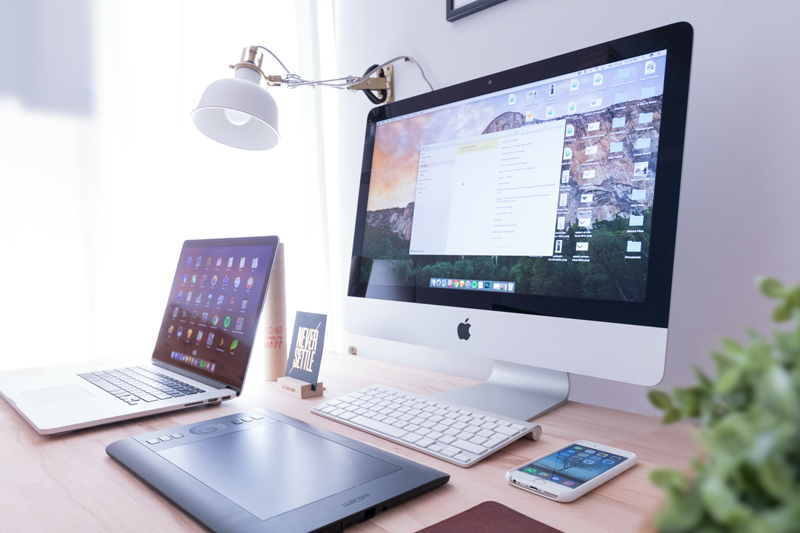As technology continues to evolve, so does the DIY sector.
DIY has expanded over the years to the point that it has become the predominant way of doing something. When you think of DIY, more often than not, you think of something tangible – a hands-on experience. However, there is so much more to DIY today, especially when it comes to technology.
DIY brings a lot of opportunities to the technology world today and convenience is a major contributing factor. For example, the invention of AI. AI has streamlined so many technological processes which in turn has created less of a need for manual labor and more of a reliance on software systems to do the job.
Further, DIY has played a major role in the e-commerce space, shifting shopping to online. DIY is redefining technology, making room for more growth in creativity and innovation.
In this blog, we will talk about the shift from traditional to DIY, how DIY is adapting in the world today and a little bit about how DIY works with B2B businesses and consumer behavior. Lastly, we will explore what the future looks like with DIY in it.
The transformation from traditional to DIY
The start of DIY dates back to the 50s – a time where DIY really began to take off – primarily in home improvement and maintenance activities. While in the 50s, raw materials were used as the main source of tools for DIY, the shift to the digital age has made DIY much more efficient with the presence of digital tools and online resources. Websites, blogs, online forums etc. made it much easier for consumers to share DIY ideas and techniques online.
Further, with the expansion of e-commerce, materials could now be bought with the single click of a button.
As technology has continued to advance, AI, augmented reality and other high tech inventions have continued to increase the efficiency and importance of DIY today.

How DIY adapts to the ever-changing world
The DIY sector is known for its flexibility and adaptability. For example, during the global pandemic, DIY became the most successful and preferred method of doing something.
In the home improvement industry and with the rise in housing prices, renovations have become much more favorable than buying a new house.
Further, with the importance of sustainability today, many businesses emphasize reduced waste when it comes to products and services.

DIY and B2B businesses
Onboarding and customer support have become major helping tools in supporting the DIY movement today, especially when it comes to online technology companies.
As a result of the pandemic, in-person interactions play a lesser role than ever before, making self-service capabilities a must. The pandemic has made self-service and DIY much more favorable to consumers, and with the continuous advances in technology, DIY will only continue to grow.

DIY and consumer behavior
Today, consumers demand high tech, convenient, fast and personalized shopping experiences. This shift in consumer behavior and preferences has led to an increased desire to shop online, particularly in the retail space.
On top of e-commerce, social media has also skyrocketed in popularity. With the option to advertise, consumers are able to quickly and easily purchase a product they see on their social page with just a click of a button.
Further, the online space has created a sense of community – bringing people together to share ideas and provide knowledge around different platforms.
With the numbers of consumers online, businesses need to adapt to the DIY needs of consumers – providing a seamless shopping experience, creating comprehensive support guides and showcasing product recommendations.

The future of DIY
DIY will continue to evolve, however, overtime will need to adapt to the ever changing preferences of consumers.
In the coming years, DIY is set to undergo a major transformation, thanks to rapid advancements in technology. From innovative tools and materials to accessible online resources and communities, technology is empowering individuals to tackle projects with greater ease, efficiency, and creativity.
Augmented reality and virtual reality platforms will revolutionize DIY experiences, offering immersive tutorials and simulations that guide users through complex tasks in real-time. 3D printing will change product creation, allowing DIY enthusiasts to design and fabricate custom parts and prototypes from the comfort of their homes.
Additionally, the integration of AI will provide personalized recommendations, troubleshooting assistance, and predictive maintenance for DIY projects, making them more accessible and rewarding than ever before.
As technology continues to evolve, the future of DIY promises to be a dynamic landscape of innovation, collaboration, and limitless possibilities.

About the series authors
The team at Adacado have been pioneering Dynamic Creative and programmatic advertising since late 2009. It all started as a platform with full service, where creative costs scaled into crazy 6 figure numbers. From the get go this made no sense at all, however big brands and agencies were satisfied, at least at the moment in time. Adacado knew this was not sustainable and began almost immediately shifting to self-serve and now to a fully DIY advertising platform that allows an agency or brand to create and launch a campaign in minutes.
Sounds like an instant success. No, we are not quite there yet! In fact we are a frustrated group of people as we watch in amazement, while prospective customers glow about its capabilities and ease of use…. But when it comes to rolling up their sleeves and doing the job (becoming DIY) they procrastinate, stall, ask for help, almost everything imaginable, except getting the job done themselves.
Thank goodness for our customers who recognized the proverbial opportunity of DIY, have figured out how and why to use Adacado, and have quickly become perennial customers with ever increasing usage. They keep our hopes alive.
So why not everyone? Not sure, so the journey goes on… Adacado continues to improve and educate, and has decided that perhaps the basics of DIY are not that obvious, so we have set out on a venture to learn more and more about DIY, and pass on our learnings, with the hope that it will encourage more people to become DIY with more things, including advertising.
We hope you enjoy the series!
The Adacado Team

